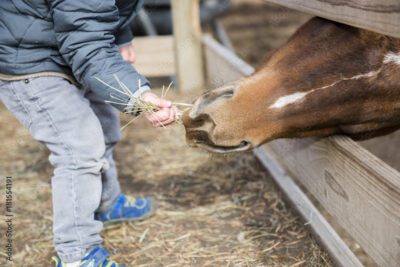By Christine Denise
Autism Mom and Contributing Writer for As You Are, a virtual clinic dramatically increasing access to early autism diagnostic services through the use of exclusively telehealth appointments
If you’re anything like me, the word autism up until this point in your life has been somewhat of a mystery to you.
I can tell you, it’s been three years since I heard the word applied to my own child, and, in a lot of ways, it’s still just as mysterious.
And that’s a challenge to accept.
But it’s also an opportunity to look at this news in a different way.
It may answer some of the questions you’ve had about why your child behaves a certain way. There’s now a diagnosis. A name for it. But there’s hardly a prognosis to go with it.
Initial Reaction
When our son was first diagnosed, all I could think about were the very few facts I thought I knew about autism.
My mind raced with thoughts about how my son would likely never socialize with anyone.
How he would never communicate.
How he wouldn’t make eye contact with anyone.
How he would struggle with sensory issues.
How my husband and I would never be able to leave him in someone else’s care – especially not in the care of his older brothers like so many of our friends were able to do with their younger children staying with their older neurotypical siblings.
How he might not eat like most kids because of sensory issues.
How he might not ever use a toilet.
And you know what?
Absolutely none of those things have come true.
You Can’t Always Predict How Things Will Turn Out
Now, at 9 years old, our son is still nonverbal. He’s very slowly learning how to use an iPad with pictures to communicate. He’s also able to say a few words, or lead us to what he wants.
Even though he’s never said a word, he’s the most popular kid in his school. Everyone knows his name, and knows who he is. He doesn’t have friends to socialize with outside of his older siblings’ friends, but it doesn’t seem to bother him at all. He may not know how to make friends, but he also doesn’t know how to miss them. He’s fine with being around whomever we are with, and he’s content if his neurotypical siblings’ friends pay attention to him, or don’t. He doesn’t seek approval from anyone, and doesn’t care what anyone thinks of his abnormal grabs for attention, like when he hugs a complete stranger or helps himself to someone else’s snack if we’re not looking.
His eye contact with us and others is so intense, that he actually holds our faces in his hands sometimes just so he can peer into them.
He does have sensory struggles, but in the sense that he doesn’t seem to have a sensory threshold. He loves loud music. He loves loud parades or concerts or events. Fireworks are a bit much, however.
Our older children are now 12, and we’ve left them with their little brother for a few hours at a time now to go out to dinner as a couple close to home. And they’ve done great. They actually enjoy taking care of him – fight over it, at times even. They love changing his pull-up, getting him into his pajamas or out of them to get him ready for the day in the mornings. It’s been one of the most pleasant surprises of our entire journey in all of this to see how his siblings have embraced him beyond our expectations.
Even though he spent a year with an NG tube due to refusing to eat starting when he was 6 months old, eating is now one of his favorite things to do. He doesn’t eat fruits or vegetables due to texture issues, but dried fruits and vegetables or those fruit pouches are a hit. He eats at the table with us – albeit with his hands because he still prefers the tactical sensory experience of his fingers.
He will go to the bathroom on a toilet if we take him, but he does still wear pull-ups. I’ll take it though, given I never thought he would use a toilet at all.
Life Can Surprise You
So all I can tell you is everything your mind is racing with right now may very well not come true.
You may not even be thinking of what your biggest challenges will become, or overthinking and worrying about what may become one of the easiest aspects of this diagnosis.
That’s because autism affects every person so differently, that it will be impossible for you to know what’s truly to come for you and your child.
So, for now, do your research on what is known about autism.
Just know that for a lot of parents who have received this diagnosis, it will always be a mystery, and only our child can show us how it will all turn out.
Do you have questions about your child’s development? The team at As You Are provides useful autism screening and diagnostic evaluations for kids 16 months to 10 years old via telehealth appointments.
Disclaimer: I am not a medical professional. This is a sponsored blog post, but all opinions are my own.


















